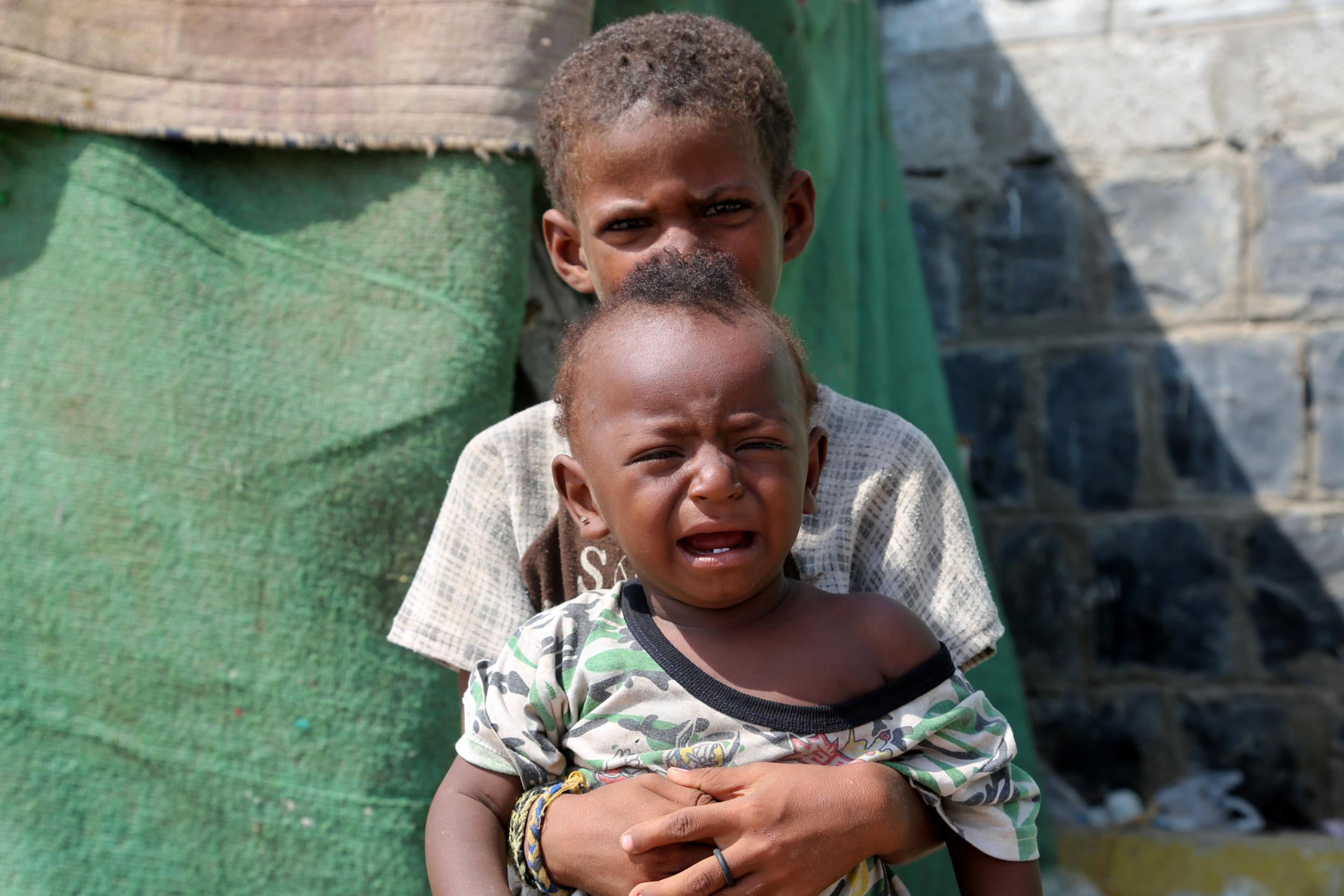Saudi Arabia urged to lift Yemen blockade as war descends into meaningless stalemate
Exclusive: In a rare interview, a Houthi rebel fighter reveals he signed up on the basis he’d be ‘fighting Americans and Israelis. Protecting Yemenis, not hurting them’

Yemen, a country consumed by internal conflict and ignored by the rest of the world, is running out of time.
It’s now 11 days into a Saudi blockade on almost all of Yemen’s ports and airspace, and the UN has warned that the country faces “the largest famine the world has seen for many decades, with millions of victims” if Riyadh doesn’t lift the restrictions which are strangling the supply of food and aid to the 7.3 million people in Yemen already on the brink of famine.
In a country where 20 million are reliant on aid and amid the world’s worst ever cholera outbreak, every moment is crucial. The blockade so far is estimated to have pushed an additional 3.2 million people into hunger.

If the status quo remains, 150,000 malnourished children will die within the next few months, the World Food Programme has said.
As part of a series of bold moves with ripple effects across the Middle East last week, Saudi Arabia retaliated to a 4 November rebel Houthi ballistic missile from Yemen that was intercepted near the capital’s airport with a complete shutdown of even government-controlled routes in and out of the country.
The unprecedented move was designed to show that weapons smuggling to the Iran-backed Houthis would not be tolerated. After international outcry, the UK and US-supported Saudi-led Arab coalition reopened some air and sea ports in loyalist areas – but most of the major import routes, including the port of Hodeida, from where the majority of Yemen’s imports flow, remain shut.
“Since the blockade started, 13 vessels that had been cleared by the UN have been turned back or forced to leave Hodeida port, and prices of basic commodities are starting to rise steeply as a result of the cut in supply,” Caroline Anning, Save the Children’s senior conflict and humanitarian adviser, told The Independent.
“The impact on families who are already struggling to afford even a meal a day is catastrophic.”

As well as the proxy powers of Saudi Arabia and Iran which are back opposing sides in Yemen’s civil war, there is a complicated domestic framework encompassing the desires of hundreds of different tribes and political players.
On a visit to loyalist Marib province earlier this month, The Independent met local sheiks who expressed sadness at the “humanitarian shame” the war had brought to their country, which struggled with high levels of poverty before the war broke out in March 2015.
But while political and military figures may have their eyes on the bigger picture, some on the ground don’t even know what they’re really fighting for.
In Marib’s general hospital – where almost every bed was filled by a soldier injured on the front line – one room was empty except for a solitary Houthi fighter, whose only company was the guard outside the door.
“They told me I’d be fighting Americans and Israelis,” the 20-year-old with bandages on his left arm and leg said. “Protecting Yemenis, not fighting them. They said the Americans were coming and they were going to try and change things.”
The young man, who did not give his name, only spent three months on the front line before being shot and wounded. Tribal fighters loyal to the exiled government brought him to Marib, where he effectively remains a prisoner of war.
Once his wounds heal, he doesn’t know what will happen – but he expressed more worry about his family on the other side of the front line, where cholera is rife and basic foodstuffs and fuel are cripplingly expensive.
The new blockade put in place since then has sent food and fuel prices soaring, and the situation is not sustainable.
On Thursday, the leaders of the World Health Organisation, UNICEF and the World Food Programme issued a joint appeal for the easing of the blockade.
The sentiment was echoed by the UK Foreign Office, which said in a statement the British Government is “deeply concerned by the risk of a serious deterioration of the humanitarian situation”.

Aid agencies worry, however, that the damage for millions may have already been done.
“Yemen was already on the brink,” Farea al-Muslimi, co-founder of independent think tank the Sanaa Centre for Strategic Studies, previously told The Independent.
“This was the last possible thing you could do to push Yemen off the cliff. For the first time in the war, even if you have money it makes no difference.”
Join our commenting forum
Join thought-provoking conversations, follow other Independent readers and see their replies
Comments
Bookmark popover
Removed from bookmarks